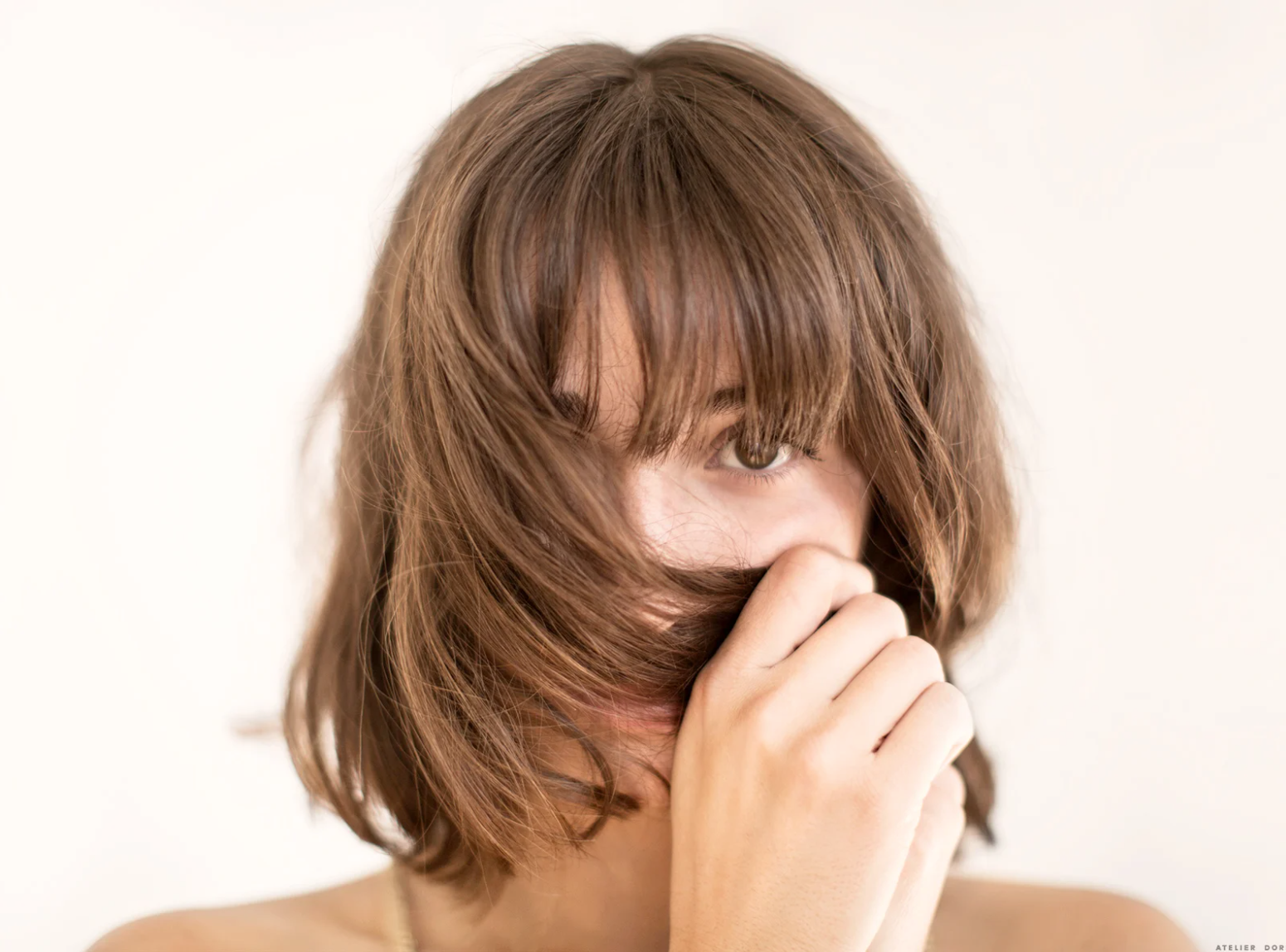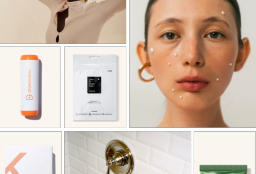Let’s Talk about Acne with Sofie Pavitt
4 years ago by
If you had asked teenage Sarah about her skin, she’d have told you vehemently (with exaggerated arm gestures for added melodrama) that it was a zit colony, where all the disgusting pustules got together to party and make her life hell. It’s true that I spent a significant amount of time thinking about my zits, trying all the remedies from home jobs (tea tree oil, nail polish remover) to almost every product from Bonne Bell to Benzoyl Peroxide trying to kill the little colonies off (my skin barrier still has PTSD from it). But now, with a couple decades of hindsight and a career writing about such things I can tell you objectively that my skin wasn’t that bad. My three or four semi-permanent spots were just “normal”, and leveled out to a predictable solo spot on my chin to celebrate the beginning of PMS each month. Despite what 16-year-old me would have you believe, I was lucky.
But a lot of my friends were less so, breezing through a relatively zit-free high school, only to be faced with a much more brutal beast in their 20s and 30s: adult acne. These are the decades you’re supposed to be getting your sh*t together, not agonizing over your pores so not surprisingly it hits different. One friend, Penny, told me “I would never let anyone see me without makeup, not even my close friends, and especially not boys. I’d get up every morning and apply a full face before they woke… I think it wrecked my dating life at the time because I just couldn’t relax.” After suffering for eight years and trying every over-the-counter remedy clever marketers could spin, she eventually went to a dermatologist who prescribed Oratane, which cleared it for good.
Sherine, a beauty journalist (and my partner-in-crime at gloss etc) went through a similar thing – except it coincided with landing her dream job as a beauty editor, proving that life can be a real jerk sometimes. “Honestly, I had spectacular skin as a teen, I didn’t go through any of the acne agony that my friends experienced, and I took it all for granted. And then at 30, I got my dream job with a side of cystic acne around my jawline. The lumps were deep, they were red, and they were incredibly painful. Sometimes, it got to the stage where I couldn’t sleep on my side. It was so demoralizing and depressing, especially as I was going out to all these beauty events and meeting PRs.” There was no rhyme or reason either; it just was a “hormonal imbalance”.
The biggest slap in the face was that she has every professional therapist/ treatment/ product at her disposal – but nothing helped. “The upper portion of my face was super glowy, but nothing helped the acne. After about a year of frustration and tears (not gonna lie), I finally went and saw a dermatologist, and then things started changing.” Like Penny, she was put on a prescription oral medication (sprinolactone) for about two years (six months to work up to the dose, one year on the dose, six months to come down) combined with topical cream and some tweaks to her diet (less red meat, chicken and dairy) – and wouldn’t you know – it worked!
“I know readers can get annoyed when beauty journalists are all ‘see a dermatologist!’ but it really, really REALLY helps. Like, if you had a heart problem, you wouldn’t go to your GP—you’d see a cardiologist. Your skin is an organ, and if you’re dealing with a serious issue that’s stressing you out, you have to see a specialist. That’s my advice, anyway.” And she’s right. Because obviously acne sucks (unless it’s the Swedish clothing kind), but with the right care – and knowledge – it doesn’t have to be forever. Here, New York based esthetician and owner of Sofie Pavitt Skincare (a results-driven facial studio in Downtown NYC) answers everything else you wanted to know about acne.
When does the odd spot officially become acne?
It depends on the regularity and consistency or the breakouts. While a pimple every now and then is most likely environmental, if it’s consistent Sofie says she’d consider your skin “acneic” aka: having a general predisposition to breakouts.
Know your type
Within the acne family there’s many members, all with incredibly unsexy names that make you want to shudder a little. Sofie explains that acne is measured in grades from 1-4 (4 being most severe) and it can either be inflamed (cysts, nodules, pustules and papules) or non-inflamed (whiteheads). However, they all start the same – as a microcomedone, which forms after a blockage of the sebaceous (oil) duct. Sofie says, “It’s normal to have both inflamed and non-inflamed acne, and you can suffer with either with any skin type. Everyone is different and you need to tailor your approach to clearing it.” Hormonal acne (the kind that both Penny and Sherine suffered from) is almost always cystic and inflamed and hits women post teens (20s, 30s, and even 40s). It’s linked to – you guessed it – hormones (usually testosterone) and will usually pop up around the jawline/ below the nose.
It’s not just about oil
If only it were that simple. Sofie says that oil production is only one part of the problem, and that your skin can be bone-dry and still have cystic acne. “There’s three main factors to consider when understanding how acne forms: the presence of dead skin cells congesting the pore; excess oil production which mixes with these dead skin cells and C acnes bacteria that is present in the skin and then eats this dead skin/oil causing inflammation and infection within the pore.” And of course hormones have a part to play because they trigger the sebaceous glands (the oil producing ones).
What about diet?
This may be a contentious one and the Internet would have you believe you can fix acne with food alone, but Sofie’s take is that it’s only one part of the bigger picture. “I believe that a lot of skin conditions begin in the gut but not so much acne. Sugar generates an insulin response in the body that can increase oil production so yes it can be a factor.”
It’s not you… it’s genetics
Yes, environmental and even emotional factors (hello, stress acne and maskne) can play a part but Sofie says if you’re predisposed to it, the genetic predisposition never goes away. “It can lay dormant for years and then flare up suddenly,” she says, noting that people can also experience it when coming off birth control, entering peri menopause or going through periods of high stress.
So, how do you fix it?
Ah, the million dollar question. And the answer is: it’s complicated. See, there is no one-size-fits-all solution to acne, because it really depends on the type and severity of the acne – and determining that is best left to an expert. Even over-the-counter products (which can actually be helpful in some instances) should be chosen alongside a professional so as Sofie says you’re “not playing the game with the wrong set of instructions”. “An esthetician can determine a home-care routine to treat your particular type of acne, and if you don’t see results within 12 weeks I would then recommend your next step to visit a dermatologist, who may be able to prescribe some medications” she says. But Sofie also emphasizes the need for home-care in addition to medication, “I see myself as a supporting actress to dermatologists, we provide a deep clean treatment and plan home-care to assist what the derm has prescribed.” As far as over-the-counter remedies are concerned, Sofie name-checks salicylic acid, benzoyl peroxide, Mandelic acid and retinols as some of her favorite pimple-fighting ingredients, but again speak to a professional before you dabble so you’re not too aggressive (or too gently) in your approach.
And finally… is it really that bad to pop a pimple?
We know it’s tempting – we’ve seen the YouTube videos – but is it really as bad as skin whisperer’s say it is? Uh, yep. “You’re causing trauma to the skin, and can also spread the infection from one pore into a wider area,” says Sofie. On top of that, hyperpigmentation is more common in picked areas so you’re just adding to your skin concerns, and you can even potential cause structural damage is you’re really overzealous in your popping crusade. The bottom line: step away from the zit, and leave its treatment to the pro’s.
Learn more why we are obsessed with Sofie Pavitt here and Sarah Tarca here.


























































Can we talk about rosacea too please?
I have rosacea and would like to read useful information about it.
Such an honest piece on acne experience. Really enjoyed this read. As an adult who is now experiencing adult acne, would love to read more on this and interested in recommendations that have been tried and successful.